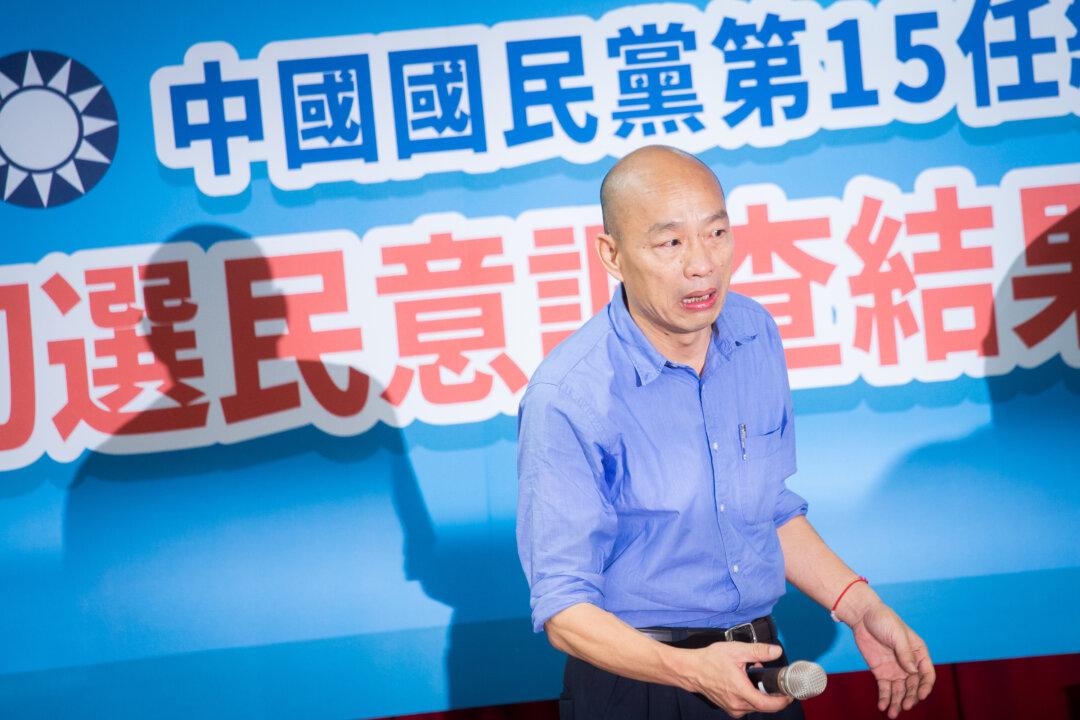Han Kuo-yu, the China-friendly politician who was a surprise election winner for mayor of the Taiwanese city of Kaohsiung last November, defeated Foxconn founder Terry Gou to become the Kuomintang (KMT) party’s nominee to run in the 2020 presidential race.
Han, 62, will face incumbent Tsai Ing-wen of the Democratic Progressive Party (DPP), who is seeking reelection. The self-ruled island is set to hold its presidential election in January amid heightened tension with the Chinese regime, which considers Taiwan a renegade province and has threatened the use of military force to bring the island under its control.





